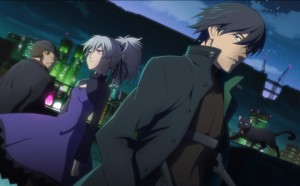All the shudders of the temple were closed. All the doors were closed. The carpets scrubbed and clean, arranged ornately and geometrically correct. The proper incense was wafting across the huge inner chamber. The gold statues had been polished, the candles lit, the electric lamps dimmed. The host had been been brought out. Mikhail sat alone in the center of it all, bowed, almost kissing the floor, and rhythmically humming the incantations.
He had been trained for years in Senna, and it showed. When he sang, an entire flock of geese outside fell directly into line and moved in tandem, mesmerized. The acoustically built temple echoed the gentle, mellow rhythms of his inner turmoil back to him. The world shrank to just the size of the Palace, then just the size of Mikhail’s body, then just the size of his heart, and then it disappeared and he believed himself floating in another world. He floated in that aetherial bliss for hours, but when at last he closed his mouth and lifted his head, physically exhausted but spiritually whole and cleansed, it had been no more than mere minutes. His limbs were so weak from the concentration that he collapse over sideways, head rebounding on the cold stone floor, just inches from the rich silk carpet.
Minutes later, Alexander, who had been patiently waiting outside for his master and mentor, pushed open the mammoth door and entered the sacred space. Far across the chamber, by the host, he saw the collapsed Mikhail.
“Are you okay, Master?” the young boy asked.
Mikhail groaned. “Yes Sasha, my limbs are just weak from concentration.”
“Please Master, could you call me Alexander? I’m not a boy anymore.”
With Alexander’s help, Mikhail rose to his feet. His balance was precarious though, so Alexander supported him beneath his left arm, and together they hobbled their way out of the sacred chamber.
“You are still only a boy, Sasha, no more than sixteen. And even if you were eighteen, or twenty, or forty, or eighty you would still have the spirit of a boy. You earn your adulthood, Sasha. We all do.”
When they reached the huge doors, which Alexander has left slightly ajar when he entered, they slipped through, and Alexander placed Mikhail safely on a chair in the nearby reading room, where he had prepared a cozy fire, a thick blanket of the finest threads and a tray of small pastries. Alexander shut the door, and the sound of its lock resonated throughout the entirety of the palace.
“Did you see anything, master?” Alexander said. They were both sitting in the reading room, Mikhail besides the fire with the blanket and enjoying the pastries, Alexander a few feet away, sitting on the floor.
“All and nothing, as always,” he said blankly. Alexander sometimes deeply respected his tendency for cryptic statements, but other times, like now, it irritated him to no end.
“That’s not true,” Alexander said. “You must’ve seen something.” This was a dance they danced, every so often.
“It is my job to see nothing,” Mikhail said. Although he was quite enjoying the cream-filled pastries, which Sasha had prepared himself, he put down the one he was eating, and gazed into the deep red-heart of the fire. “And if I ever do see anything, it’s my job to say nothing of it.”
Alexander wanted to hit him. His left arm twitched, ever so slightly. “The Czar says they’ve already passed the border. They’re no more than ten days journey from us.”
“This is a spiritual matter, not a military matter, as it always has been and always will be,” Mikhail said. He felt bad to be so cold to the boy, but he could not get his mind straight recently, and the sessions were only complicating his emotions. It took everything he had to keep the proper demeanor of a chanter, and he had no reserve energy to be kind to his pupil, or to teach his pupil, and or to respect his pupil. But he knew that, and it made his incantations all the stronger when he was in the sacred chamber, that additional item weighing on his heart. He knew, in a way, that it was making Sasha stronger, too.
Alexander, dejected, played with the fibers of the rug. He hadn’t received a lesson in weeks, even a practice session, barely any advice. He had been doing little more than making pastries and starting fires.
He turned and gazed out the window, at the layer of snow covering the ground, and at the light, downy flakes that had begun to fall since last time he looked out a window. The horizon stretched on, endless and unforgiving.

